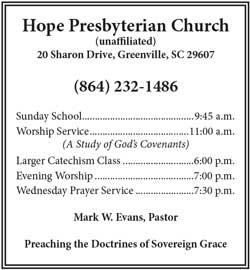
WASHINGTON -- 150,000 Black and Latino Churches of the National Black Church Initiative and The Sickle Cell Disease Partnership Send President Biden and the Congressional Leadership A Letter Seeking Their Support for the Sickle Cell Disease Comprehensive Care Act (H.R. 6216/S.3389)
The National Black Church Initiative (NBCI), a coalition of 150,000 African American and Latino churches which constitute 27.7 million churchgoers and voters, sends President Biden and the congressional leadership a letter seeking their support for the Sickle Cell Disease Comprehensive Care Act (H.R. 6216/S.3389). The Black Church leadership cites this bill as one of its top priorities on its legislative agenda for 2022 and 2023.
Dear President Biden, Senator Schumer, Rep. Joyce Beatty, and Speaker Pelosi:
We, the National Black Church Initiative, are writing in support of the Sickle Cell Disease Comprehensive Care Act (H.R. 6216/S.3389), the Sickle Cell Care Expansion Act (H.R. 7177/S.4425), and the Sickle Cell Disease Treatment Centers Act of 2022, and humbly request that every member of the House of Representatives and the United States Senate support, pass and fund these critical pieces of legislation.
The Biden administration has done an excellent job in safeguarding Americans. We ask that you include those living with sickle cell disease-- sickle cell Warriors--and their families by supporting these three bills.
The National Black Church Initiative (NBCI) is a coalition of 150,000 African American and Latino churches working to eradicate racial disparities in healthcare, technology, education, housing, and the environment. NBCI's mission is to provide critical wellness information to all its members, congregants, churches, and the public through faith-based, out-of the-box innovative solutions and sound health science, to address critical economic and social issues.
Our purpose is to partner with major organizations and officials to reduce racial disparities in the variety of areas cited above. NBCI's programs are governed by credible statistical analysis, science-based strategies and techniques, and methods that work. Our 27.7 million members are looking forward to collaborating with you and your respective staff members to propel these pieces of legislation toward a successful outcome.
NBCI has joined forces with the Sickle Cell Disease Partnership, an group of over 15 organizations committed to improving the lives and outcomes of individuals living with sickle cell disease. We are calling on Congress to pass the three pieces of legislation that will increase access to treatment and improve the lives of the 100,000 plus Americans living with the disease. Together, the Sickle Cell Disease Comprehensive Care Act (H.R. 6216/S.3389), Sickle Cell Care Expansion Act (H.R. 7177/S.4425), Sickle Cell Care Expansion Act (H.R. 7177/S.4425) and the newly introduced The Sickle Cell Disease Treatment Centers Act of 2022 (H.R.8855/S.4866) will boost funding for research and increase access to life-changing treatment. We are seeking 250 members of the House of Representatives and thirty-five members of the United States Senate from both sides of the aisle, to be co-sponsors of these pieces of legislation.
"The time for Congress to act is now," said Brett Giroir, M.D., Senior Advisor, Sickle Cell Disease Partnership. "For too long, our nation's efforts to address this painful, debilitating disease have been woefully inadequate, leaving patients and families behind – without access to high-quality care and without sufficient progress toward new treatments and cures. Sickle Cell Disease affects African Americans at a disproportionate rate, and frighteningly, 1 in 12 are diagnosed as genetic carriers. For far too long, policymakers have stood on the sidelines. Congress can take a giant first step to addressing this significant health inequity by passing legislation this session and ensuring Sickle Cell warriors get the care and the support they need now."
The Sickle Cell Disease Comprehensive Care Act (H.R. 6216/S. 3389) is bipartisan House and Senate legislation that authorizes the federal government to establish a demonstration program in up to 10 states to provide comprehensive care to Americans with Sickle Cell Disease who are low-income or disabled and receive health coverage through a state Medicaid program. The legislation would ensure such individuals in participating states have coordination of, and access to, clinical, mental health, and ancillary and support services they need because of their disease. The legislation would also require reporting and evaluation to study the results of the demonstration project.
The Sickle Cell Care Expansion Act (H.R.7177/ S.4425) is legislation in the House and Senate that would authorize a scholarship and loan repayment program to incentivize medical physicians to enter into the field of Sickle Cell Disease research and treatment.
The bill would also award grants to health clinics, community organizations, and other local nonprofit organizations that collaborate with individuals who have Sickle Cell Disease, to help improve health literacy, equip them with information on health and community services related to Sickle Cell Disease, and improve the care and treatment decision-making process related to the disease.
The Sickle Cell Disease Treatment Centers Act of 2022 (H.R.8855/S.4866) establishes a nationwide network of more than 120 Sickle Cell Disease Treatment Centers based on a hub-and-spoke framework and provides support for 100 community-based organizations. The legislation also creates a National/Regional Coordinating Center to coordinate the National Sickle Cell Disease Treatment Center Program and authorizes appropriations of $535,000,000 annually to address the issue.
About Sickle Cell Disease
Sickle Cell Disease is a rare, genetic blood disorder that primarily affects African American individuals. Sickle Cell Disease is inherited when a child receives two sickle cell genes—one from each parent. A person with Sickle Cell Disease is born with it.
Healthy red blood cells are round, and they move through small blood vessels to carry oxygen to all parts of the body. In someone who has SCD, the red blood cells become hard and sticky and look like a C-shaped farm tool called a "sickle." The sickle cells die early, which causes a constant shortage of red blood cells. Also, when they travel through small blood vessels, they get stuck and clog the blood flow. This can cause pain and other serious problems such infection, acute chest syndrome, lung problems, severe pain, and stroke.
We thank you for taking the time to read our letter and encourage the Biden Administration, the House of Representatives and Congress to come together to pass and fully fund these critical bills. Doing so will vastly improve the quality of life, health and access to all those living with sickle cell disease.
ABOUT NBCI
The National Black Church Initiative (NBCI) is a coalition of 150,000 African American and Latino churches working to eradicate racial disparities in healthcare, technology, education, housing, and the environment. The mission of NBCI is to provide critical wellness information to all of its members, congregants, churches and the public. NBCI utilizing faith and sound health science and partners with major organizations and officials reduce racial disparities in the variety of areas cited above. NBCI's programs are governed by credible statistical analysis, science based strategies and techniques, and methods that work and offers faith-based, out-of-the-box and cutting-edge solutions to stubborn economic and social issues.ABOUT THE SICKLE CELL FOUNDATION OF GEORGIASince 1971, the Sickle Cell Foundation of Georgia, Inc. has stood as a bastion of hope for victims of Sickle Cell and other abnormal hemoglobin. The Foundation is one of the oldest sickle cell-focused institutions in the nation. Our mission is to reduce the incidence of sickle cell disease, monitor the prevalence of sickle cell, and to help improve the quality of life for persons afflicted with the disease. To achieve our directives, the Foundation sponsors educational programs, conducts testing, counsels families, supports healthcare providers, and coordinates activities that benefit patients throughout the year. The Foundation works daily with the State of Georgia, medical facilities and personnel, Sickle Cell Support Groups, physicians, nurses, clinics, social workers, volunteers, and other organizations to deliver and to help facilitate client services.



















